Ryoma Takeuchi Stars in Video-Game-Turned-Drama ‘Like A Dragon: Yakuza’; Amazon Prime Video Brings to Life Beloved Fighting Franchise
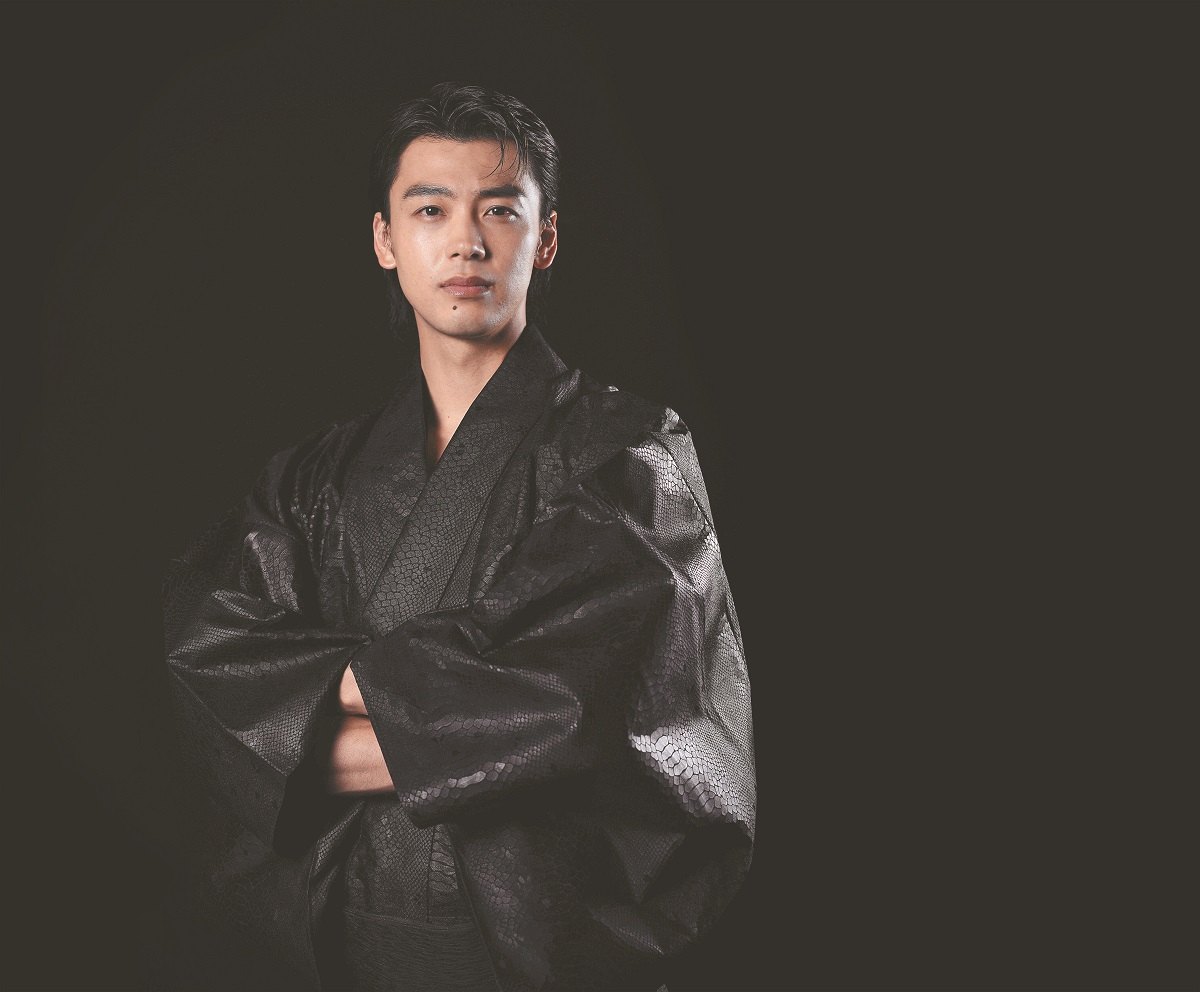
Ryoma Takeuchi
12:00 JST, November 29, 2024
Kazuma Kiryu is the protagonist of Sega’s immensely popular video game series “Ryu ga Gotoku” (Like a Dragon), which might be familiar to fighting game fanatics. The game has been adapted into the drama “Ryu ga Gotoku — Beyond the Game” (“Like A Dragon: Yakuza”), streaming worldwide exclusively on Amazon Prime Video from Oct. 25. Actor Ryoma Takeuchi plays the lead role of Kiryu.
Raised in an orphanage with Nishiki (played by Kento Kaku) and Yumi (played by Yuumi Kawai), Kiryu grows up to show promise at an underground fighting arena. Together with Nishiki, in 1995 he joins a gang that rules the sprawling entertainment district Kamurocho. Then, after being imprisoned for 10 years, Kiryu finds upon his release that Nishiki has become the gang’s leader. Meanwhile, Yumi’s elder sister becomes entangled in a violent ¥10 billion robbery of illicit funds from Japan’s largest gang, the Omi Rengo (Omi Union). The case jeopardizes the lives of both Nishiki and Yumi.
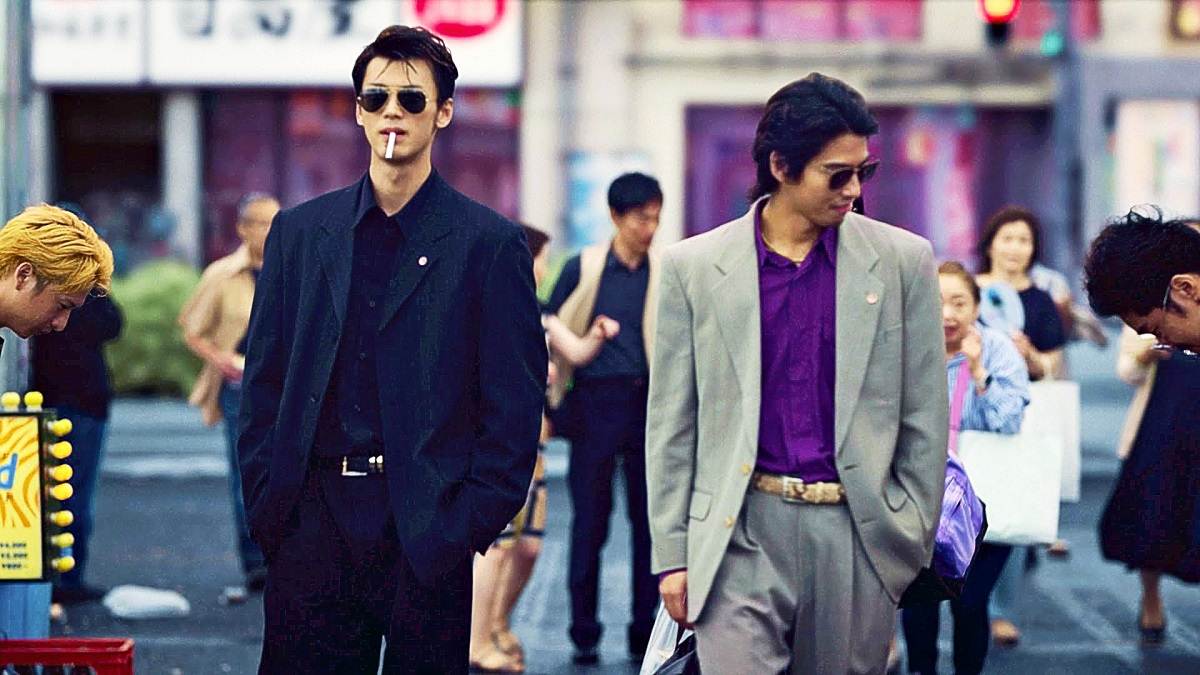
Kiryu, left, and Nishiki walk in Kamurocho in 1995.
How did Takeuchi portray the strongest man in this fictional Tokyo underworld? The actor recently sat down with The Yomiuri Shimbun to discuss his preparation for and commitment to the role.
Takeuchi arrived wearing a rugged black kimono with a scaly pattern, which he said is his own. When asked what he thought when he received the offer to play Kiryu, the actor spoke impassionedly.
“I felt I had to psych myself up for the challenge,” he said. “I felt overwhelming pressure, a sense of mission and what else? This feeling of needing to face it head-on.”
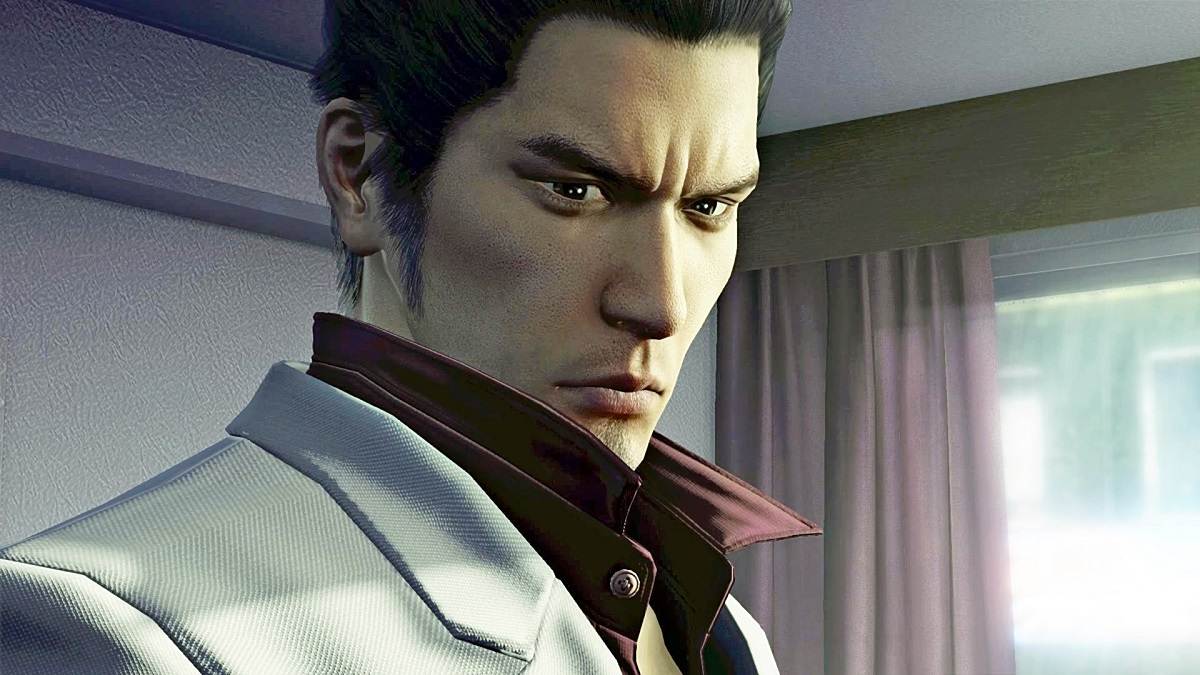
A screen from the game “Ryu ga Gotoku Kiwami” (“Yakuza Kiwami”)
Kiryu emanates violence. To unpack his personality, which is not explored in the game, Takeuchi visited locations such as an orphanage and came to understand the character as someone affectionate who craves love.
“He has fragility and naivete. He is by no means a strong person. That’s why he trains so hard. I think he follows his own sense of justice so that he can overcome himself,” Takeuchi said.
Kiryu responds furiously to meaningless violence. But he never kills.
“That’s probably because of his desire to be loved,” Takeuchi said.
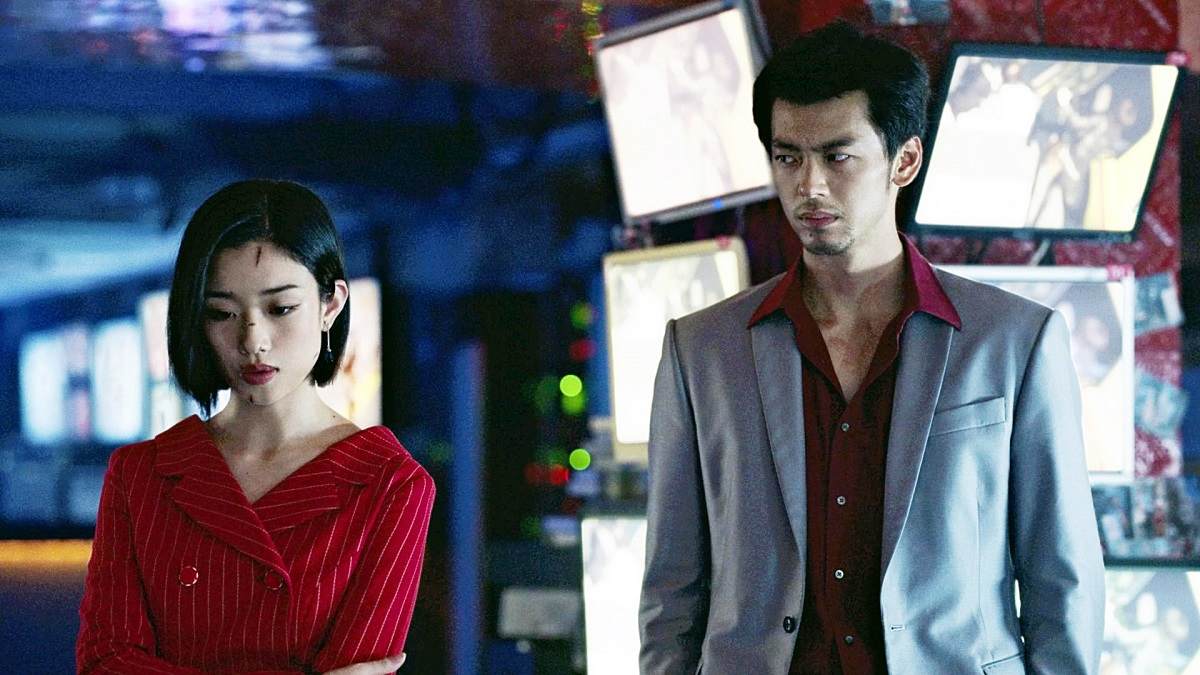
Yumi, left, and Kiryu, who both grew up in an orphanage
Kiryu is known for his powerful physique. The new drama series shows the character in two different time periods: 1995, the year he is imprisoned and when his body is fit for fighting, and 2005, the year he is released from prison. Takeuchi needed to transform his body in two different ways for his appearance to fit each time period. First, he prepared to play 1995 Kiryu by trimming his weight down from 83 kilograms to 76 kilograms through muscle training and dieting. Then, to become Kiryu in 2005, the actor shed a further 6 kilograms, though he kept working out to broaden his back, where Kiryu has a dragon tattoo.
Demonstrating Kiryu’s strength in the underground fighting arena requiring a range of fighting skills like punching, kicking, throwing and choking, was also a challenge. While Takeuchi once aspired to become a professional soccer player, he had no experience whatsoever in combat sports.
Feeling anxious, he happened to see martial artist Mikuru Asakura in a dream.
“I thought it might’ve been fate in some way, so I sent him an email directly and visited him at his private academy. Without help from his second, I wouldn’t have been able to create Kiryu’s fighting style,” Takeuchi said.
Shooting fight scenes
The underground fighting arena scenes, which included many rounds, were shot on a closed basement set over a period of three days. Takeuchi didn’t complain once, which surprised director Masaharu Take.
“I did away with such feelings because otherwise I wouldn’t have been able to push through,” Takeuchi said.
The actor was also helped by Kaku, who played Akira Nishikiyama, known as Nishiki.
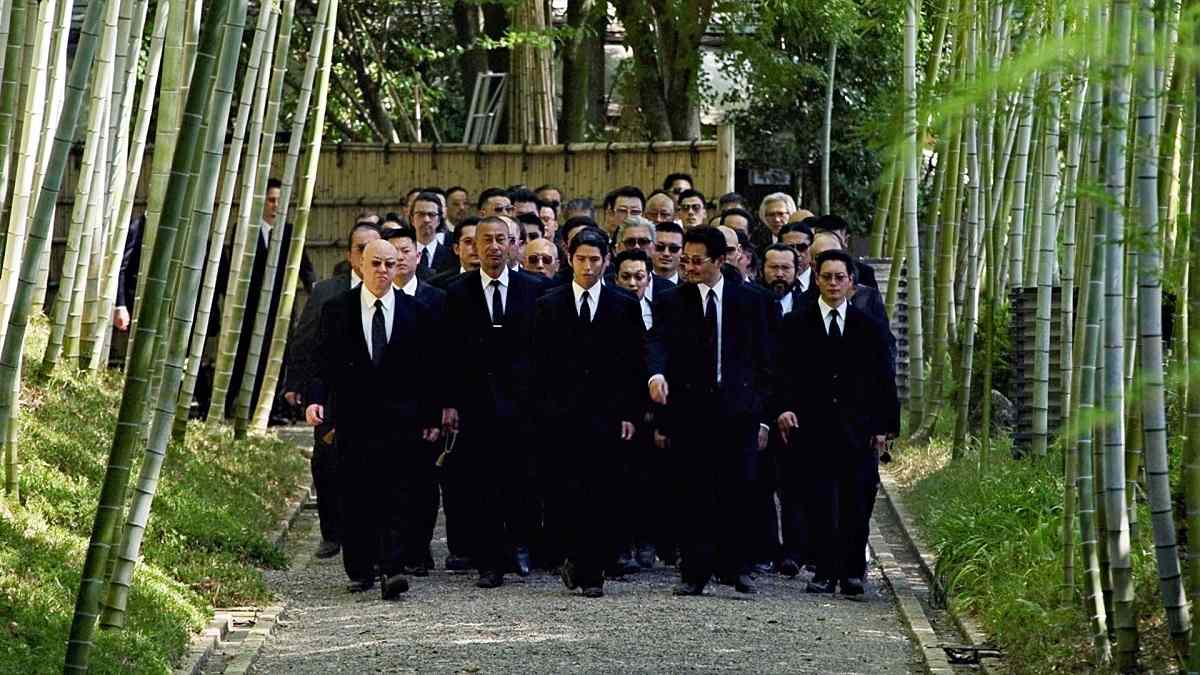
Nishiki leads a group of gangsters.
“[Kaku] discussed physical conditioning and action scenes with me. When we were working on one tough scene, he told me I should take a break. I’m very grateful to him,” Takeuchi said.
Before this, Take had said, “Our job is to ask [actors] whether they’d do it again until they say, ‘No, thank you.’”
When posed with that question regarding that particular scene, Takeuchi took a moment to think and said, “No, I don’t want to do it ever again,” wearing a refreshing smile. It seems he was able to give it his all.
Takeuchi, who turned 30 during filming, said the project represents a restart.
“After entering my 30s, I’ve become able to finally understand myself and see clearly how I want to express myself through my work. That’s why I feel as if I am standing at the starting line once again,” he said.
Director’s challenge
Take is the director of “Zenra Kantoku” (“The Naked Director”) on Netflix, an erotic comedy-drama. When approached with the offer to direct “Ryu ga Gotoku,” he accepted, thinking, “OK, so violence has come my way at last. I’m all for that.”
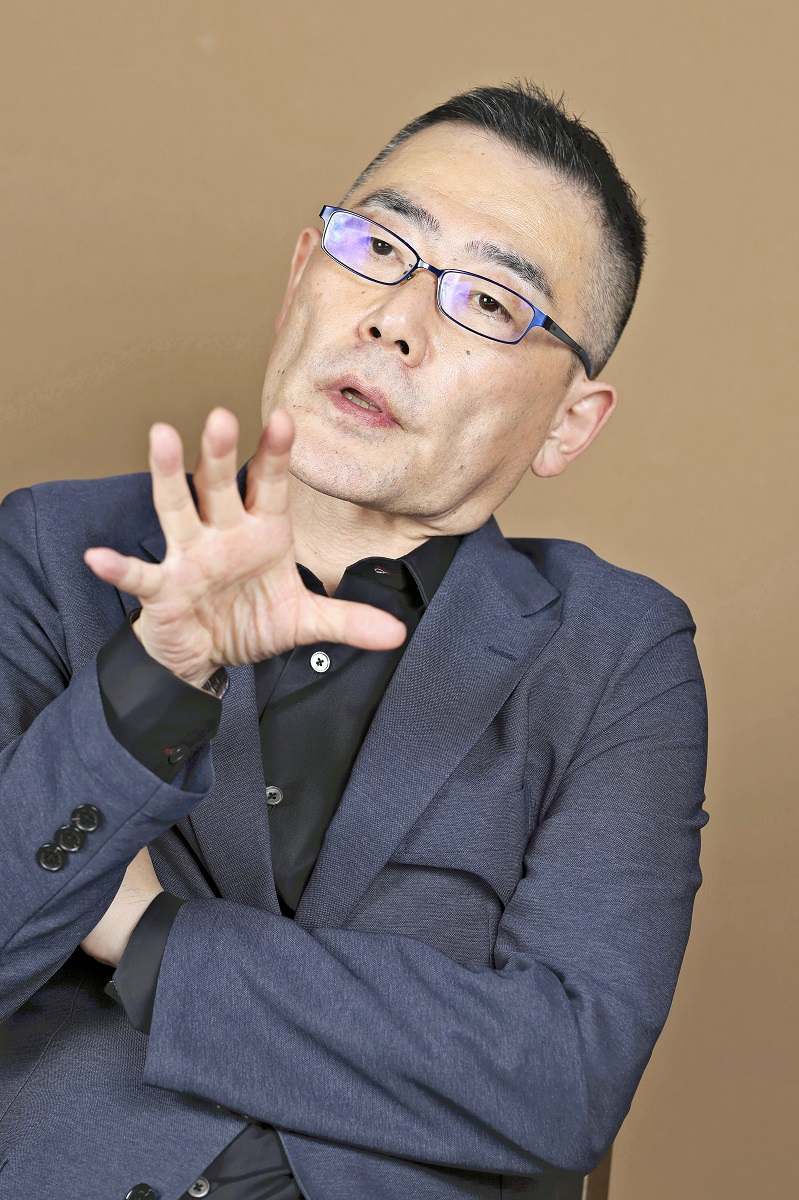
Director Masaharu Take
“[Both eroticism and violence] concern hidden and distorted aspects of humanity. They are also natural,” he said.
Yet he had concerns when making the series, because if he made a mistake in depicting those elements, “it could have a social impact even though it’s in a fictional world,” he said.
Takeuchi is perfect for the role, firstly because of his large physique and ability to perform the action sequences.
“[Takeuchi] had to play the character in two different times. The best thing about him is how he can play the immature, charming young [Kiryu] and then become a more serious character later on,” Take said in praise of Takeuchi.
Because of the violent nature of the series, Take faced many obstacles in production. As with “The Naked Director,” the creative team was repeatedly refused when trying to secure a studio or license certain songs. Under these circumstances, Take searched for how to portray violence in media.
To show the meaninglessness of violence, Take added a battle royal scene near the end, with 300 extras selected through a six-month-long audition process.
Take cited the film “Pacchigi!”, which he worked on as assistant director. “That film shoot was something that happens only once every 10 years or more. Actors and crew members alike should experience that kind of strict shooting environment; it becomes a lasting memory. Keeping it up will guide you toward your next step,” he said.
Top Articles in Culture
-

BTS to Hold Comeback Concert in Seoul on March 21; Popular Boy Band Releases New Album to Signal Return
-

Director Naomi Kawase’s New Film Explores Heart Transplants in Japan, Production Involved Real Patients, Families
-

‘Jujutsu Kaisen’ Voice Actor Junya Enoki Discusses Rapid Action Scenes in Season 3, Airing Now
-
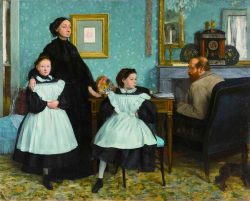
Tokyo Exhibition Offers Inside Look at Impressionism; 70 of 100 Works on ‘Interiors’ by Monet, Others on Loan from Paris
-
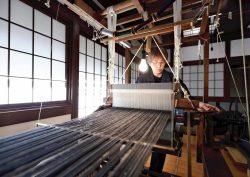
Traditional Japanese Silk Hakama Tradition Preserved by Sole Weaver in Sendai
JN ACCESS RANKING
-

Japan PM Takaichi’s Cabinet Resigns en Masse
-

Japan Institute to Use Domestic Commercial Optical Lattice Clock to Set Japan Standard Time
-

Israeli Ambassador to Japan Speaks about Japan’s Role in the Reconstruction of Gaza
-

Man Infected with Measles Reportedly Dined at Restaurant in Tokyo Station
-

Videos Plagiarized, Reposted with False Subtitles Claiming ‘Ryukyu Belongs to China’; Anti-China False Information Also Posted in Japan

























